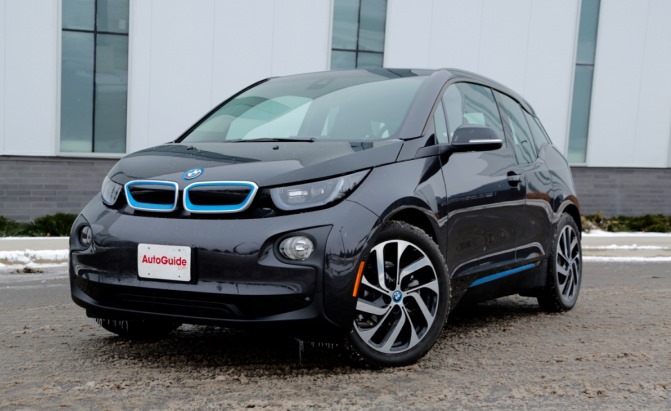BMW is stepping up its autonomous and electrified vehicle strategy by opening a self-driving car test center in Germany to help achieve its ambitious sales goals.
The German automaker expects to radically increase its sales volume to 100,000 plug-in hybrids and all-electric vehicles next year. That benchmark took three years to meet after launching the i sub-brand for plug-in electrified vehicles three years ago, CEO Harald Krueger said.
The underperforming i sub-brand won’t be going away anytime soon. BMW management has faced external criticism and internal debate over the slim return on huge investments that the i sub-brand sales have brought so far. Even so, the company will continue to invest in the i sub-brand, Krueger said.
The company chief said BMW will gradually transfer i electric drivetrain technologies to all other group brands.
ALSO SEE: Tech from the BMW i8 is Finally Trickling Down to Regular Cars
BMW currently sells one all-electric car, the i3, which includes a range extender variant, and six plug-in hybrids that combine a combustion engine and an electric motor, including the i8. That lineup will expand by adding an all-electric MINI in 2019 and an all-electric BMW X3 in 2020.
The i8 plug-in hybrid will see a convertible version in 2018. BMW’s MINI brand will add a plug-in hybrid version of its new Countryman SUV next year.
The automaker also will roll out the iNext technology flagship in 2021. BMW previewed the iNext with the Vision Next 100 self-driving concept in March.
“BMW i remains our spearhead in terms of innovation and it will continue to open up groundbreaking technologies for the BMW Group,” Krueger told reporters at a press event last week at the company’s electrified drivetrain prototype construction workshop in Munich.
BMW will take its commitment to urban mobility to the next level by adding a new R&D center for autonomous driving. The company is still pondering where it would be best to locate that new center, but according to , it’s likely to be close to the automaker’s current R&D center located near its Munich headquarters.
reported also that Krueger sees no contradiction between BMW’s “sheer driving pleasure” brand ethos and its development of electric cars autonomously driven.
“The sudden acceleration of EVs perfectly fits with sheer driving pleasure and our customers will always be able to decide when they want to drive or to be driven,” he said.
SEE ALSO: BMW is Trying to Make its Electric i3 Sporty
BMW’s future vehicle architectures will be developed for all-electric, plug-in hybrids or conventional gasoline and diesel engines. This will give BMW the flexibility to respond to future demand, he said.
The German automaker sold 2.25 million cars last year. The 2017 sales goal is consistent with the automaker’s initiative to increase electrified vehicle sales to between 15 and 25 percent of its worldwide volume by 2025.
Krueger said that available government incentives and charging infrastructures will heavily influence demand, and the ratio the company chooses between developing new all-electric or plug-in hybrid vehicles by 2025. It’s too difficult to predict that ratio today, he said.
The BMW chief was also asked about the company’s commitment to fuel cell vehicles. The automaker will continue to cooperate with Toyota on hydrogen fuel cell vehicle technology, and fuel cell cars could reach production in small volumes. He said the main hurdle for the launch of fuel cell powered cars is the lack of a hydrogen refueling infrastructure, which would be very expensive to create.
[Source: Automotive News]









